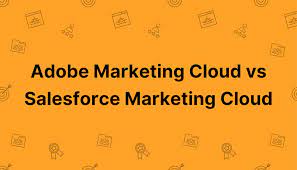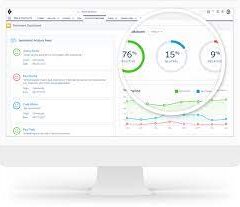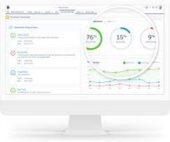In the realm of marketing automation tools, Adobe Marketing Cloud vs Salesforce Marketing Cloud stand out as two of the most widely used platforms. Both platforms offer robust solutions for managing marketing campaigns, personalizing content, and measuring return on investment (ROI).
Feature Overview: Adobe Marketing Cloud vs. Salesforce Marketing Cloud
Adobe Marketing Cloud:
Emphasizing ‘cross-channel campaigns,’ Adobe Marketing Cloud excels in executing campaigns across diverse channels, including email, mobile, web pages, and offline sources. Core functionalities include digital experiences through web content management, personalization, A/B testing of landing pages, and more. Modules encompass Campaign, Experience Manager, Media Optimizer, Primetime, Social, Audience Manager, Target, and Analytics. While it centralizes campaign messaging for consistent personalized experiences, user reviews note challenges due to a lack of robust tutorials and documentation.
Salesforce Marketing Cloud:
As a comprehensive end-to-end solution, Salesforce Marketing Cloud offers marketing studios and modules for data management and segmentation. It supports segmented campaigns across email, mobile apps, SMS, social media, and advertising. Products include Email Studio, Journey Builder, Audience Builder, Personalization, Content Builder, Analytics Builder, Intelligence, Customer Data Platform, Account Engagement powered by Pardot, Advertising, Mobile Studio, Datorama, and Marketing Cloud Connect. With high customization options, Salesforce Marketing Cloud holds a 1.51% market share in the Campaign Management category, outpacing Adobe.
Integration of Adobe Marketing Cloud vs Salesforce Marketing Cloud
Integration:
Adobe Marketing Cloud:
Designed as a standalone product, Adobe Marketing Cloud integrates with third-party systems like Microsoft Dynamics CRM and Silverpop but lacks extensive integration with Salesforce Sales Cloud. Adobe Analytics, a paid platform, is recommended for analytics, diverting from the popular free tool, Google Analytics.
Salesforce Marketing Cloud:
Tightly integrated with Sales Cloud CRM, Salesforce Marketing Cloud streamlines data flow and potential between the two products. It seamlessly integrates with various systems, including Shopify and social media platforms like LinkedIn and Twitter.
User Experience:
Adobe Marketing Cloud:
Despite its goal to provide delightful digital experiences, the user interface of Adobe Marketing Cloud is criticized for being somewhat dated and clunky, lacking modern aesthetics.
Salesforce Marketing Cloud:
While some older features await design revamps, Salesforce Marketing Cloud generally offers a positive user experience. The platform’s user interface includes a simple navigation bar and engaging displays, notably in the Journey Builder tool.
Customer Support:
Adobe Marketing Cloud:
Adobe Marketing Cloud provides email support, a knowledge base, and 24/7 live chat support. However, its online community support and forums are smaller compared to Salesforce.
Salesforce Marketing Cloud:
Salesforce Marketing Cloud offers phone support, a unique advantage. Support levels vary based on pricing plans, with tailored and proactive support options. The Trailblazer community forums and training resources facilitate self-solving errors.
Pricing:
Both Adobe Marketing Cloud and Salesforce Marketing Cloud offer pricing by quote, depending on the number and type of modules required. Salesforce Marketing Cloud is generally rated at a higher price point but provides comprehensive features and seamless integration capabilities.
Other Comparisons:
In Salesforce Marketing Cloud’s AI functionality ‘Einstein’ is a notable feature absent in Adobe Marketing Cloud.
Salesforce Marketing Cloud supports more languages than Adobe Marketing Cloud, including Swedish, Spanish, French, Italian, Dutch, and Portuguese.
Salesforce Marketing Cloud caters to B2B companies with specific products like ‘Account Engagement powered by Pardot,’ offering advanced lead scoring, grading tools, and lead nurture workflows.
Choosing the Right Fit:
Adobe Marketing Cloud suits enterprise-sized businesses with complex marketing attribution needs, focusing on consistent personalization across multiple channels.
Salesforce Marketing Cloud is suitable for small, medium, and large businesses, providing a tailored pricing model. It is widely used by B2C companies and offers tools for B2B use cases.
Contact Tectonic today for assistance in further evaluating these email marketing solutions.














